|
This e-dialogue on cosmology and education supports the research of one of RRU's graduate students, Cate McEwen, in the Master's of Environment and Management Program.
The dialogue has been archived as a .PDF document. Panelist statements have been archived verbatim; however, given the software used was not synchronous, certain panelist statements have been reorganized to maintain the logical flow of the discussion.
The following documentation has been archived as part of the dialogue:
- The complete dialogue, as a PDF document (560 KB)
- Background information for the dialogue
- Some readings on the subject area
- The panelists, with their bios
| Background |
complete e-Dialogue (pdf) |
|
“New behaviours that last come from new ways of seeing, from new awarenesses and sensibilities.” Peter Senge wrote these words in the foreword of William Isaacs’ book on dialogue (Isaacs, 1999, p.xviii), but they are as aptly applied to a discussion of sustainability and the requisite need in Western society for a return to cosmology.
Cosmology is the study of the form and evolution of the universe. Interpretations in the universe story are to be found in various civilizations, religions and indigenous cultures. These stories serve to give us a conceptual response to critical life questions - where has life come from, who are we as human beings, and where we are going? Given modern western culture’s reliance on the truth of science and its separation from the aesthetic, moral, and spiritual, it is likely the first culture to attempt to function without an overriding view of the cosmos (O’Sullivan, 1999). The value of the cosmos story is in how much it offers to society a functional vision and an ecologically sustainable vision of humans in the earth community (Hutchinson, 1998).
Pierre Teilhard de Chardin, a Jesuit priest and palaeontologist (1881-1955), was the first western philosopher to articulate that the story of the universe is as much a physical evolution as a spiritual or divine evolution. From a single energy event, the universe develops from matter, into life, into consciousness, and eventually, into God. Cosmologist Brian Swimme, further articulates his vision “ He (Teilhard de Chardin) had a sense that a deep change at the level of being – a change of heart, a change of mind, a change of actual body – can take place in the human who learns to see the universe as suffused with divine action” (Bridle, 2001, p45). Within his vision, he refers to such concepts as: complexity-consciousness – seeing evolution as a process of increasing complexity and continuing to complexify through the development of a more conscious mind; the noosphere – being an additional layer to the geosphere and biosphere, as a layer of consciousness; and hominization – referring to the emergence of self-reflective consciousness in human beings and the significance of this creating them as influential agents of change in evolution (Appleton-Weber, 1999; Bruteau, 1974; King, 1996 ; Samson and Pitt, 1999).
Thomas Berry, an historian, eco-theologist and Catholic priest, highlights the need for a spiritual awakening in addressing the ecological crisis, one steeped in a deep ecological conscience that is based in a new cosmology, bringing science and spirituality together. Berry tells us that each culture has its Great Work and The Great Work now upon us is to carry out the transition from a period of human devastation of the earth to a period when humans would be present to the planet in a mutually beneficial manner (Berry, 1999). Berry calls for a reinvention of the human, at the species level, within the community of life-systems, within the universe story. Berry coined the term ecozoic era, elaborating on the concept with Swimme (Swimme and Berry, 1992) – an era of human reengagement with the earth community and celebration of the wonderment of life. It involves moving away from the current anthropocentric focus to an ecocentric focus, recognizing the interdependency of human life on a healthy functioning natural world.
In an assessment of educational institutions, educator Edmund O’Sullivan cites a personal communication with Thomas Berry, “All human institutions, programs and activities must now be judged primarily by the extent to which they inhibit, ignore or foster a mutually enhancing human-earth relationship” (O’Sullivan, 1999, p43). O’Sullivan cautions us on the importance of considering the role of educational institutions in our present crisis – that they are presently deficient in the understanding of the human-earth relationships because they are tailored to the needs of the consumer industrial society, aligning with programs and procedures which ignore and inhibit the interconnectedness of all life (O’Sullivan, 1999).
O’Sullivan (1999) calls for a transformative perspective – one that radically restructures all current educational directions. “What is totally lacking in modern educational theory is a comprehensive and integrated perspective that has in the past been identified as a cosmology” (O’Sullivan, 1999, p4). Modernist culture’s insistence on competition, individual success, and privatism is reflected in educational institutions placing society’s consideration of achievement, order, control and hierarchy over educational values of free inquiry, development of a critical and creative consciousness, and the quest for an understanding of life’s meaning (Purpel, 1989). The cosmology story lessons give a spatial view of the universe rooted in place and in nature, and also provide a temporal view of the unfolding of the universe through time, thus integrating human history with the changing patterns of natural history, offering an ecologically sensitive approach (Hutchinson, 1998).
And yet, some curriculum offers cosmology story lessons, Montessori and Waldorf schools, for example (Hutchinson, 1998). An ecozoic curriculum has been created for grade school for Ontario Society for Environmental Education. And Thomas Berry suggests a sequence of courses at the post-secondary level for a planetary perspective on education (O’Sullivan, 1999). Yet otherwise, environmental education curricula and outdoor experiential programs represent the dominant activity in attempting to develop greater awareness in students about their environment. Earth education, an alternate education of the environment, offers intensive immersion in experiential and sensory programs (Van Matre, 1990).
This e-dialogue will examine the meaning of cosmology to sustainability, the relevance of (environmental) education to sustainability, and the cross over of the education of cosmology.
Using dialogue, we have the advantage of building upon one another’s knowledge, perspective, and insights. Dialogue is “ a conversation with a center, not sides” (Isaacs, 1999,p19) - a way of taking the energy of our differences and channelling it toward something new, removing us from polarization of viewpoints and joining us into a greater common sense. “The intention of dialogue is to reach new understanding, and in so doing, form a totally new basis from which to think and act” (Isaacs, 1999, p19).
*citations are available here.
|
| Moderator |
complete e-Dialogue (pdf) |
|
|
| Ann Dale, Professor, Science, Technology & Environment Division, Royal Roads University. |
|
| Participants |
|
Heather Eaton, Professor, Saint Paul University, Ottawa, Ontario
Heather Eaton holds an interdisciplinary Ph.D. in ecology, feminism and theology from the University of St. Michael's College, Toronto School of Theology, and a Master's of Divinity.
Dr. Eaton is interested in religious responses to the ecological crisis, particularly the relationship between ecological, feminist and liberation theologies, and is committed to interreligious responses to ecological crisis. She has taught courses in these areas at St Michael's College, Toronto School of Theology; Faculty of Environmental Studies, York University; and Saint Paul University. Dr. Eaton is involved in conferences, workshops, teaching and publishing in these areas.
Ann Jarnet, Senior Manager, Environmental Learning and Youth Programs, Environment Canada
Ann Jarnet is Senior Manager of Environmental Learning at Environment Canada, a position she has held since 1993.
With a background in Education, Political Science and Canadian History, as well as Religious Studies, Ann has combined her fields of knowledge with environmental and sustainability issues and is mostly concerned about environmental ethics, spirituality and responsible consumption.
Prior to becoming a federal public servant, Ann was a classroom teacher for many years.
Bruce Johnson, Professor, College of Education, University of Arizona
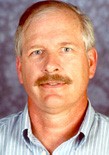 Bruce Johnson is a professor of environmental learning and science education at the University of Arizona. His research includes looking at the development of ecological knowledge, beliefs, and actions of young people and their teachers. Bruce Johnson is a professor of environmental learning and science education at the University of Arizona. His research includes looking at the development of ecological knowledge, beliefs, and actions of young people and their teachers.
Bruce also serves as International Program Coordinator of The Institute for Earth Education, a nonprofit organization dedicated to the development and dissemination of earth education programs designed to help people of all ages live more harmoniously and joyously with the natural world. He is coauthor with Steve Van Matre of several earth education books and materials, including Earthkeepers and SUNSHIP III.
Richard Kool, Program Manager, Master of Arts in Environmental Education and Communications, Royal Roads University
Richard completed an M.Sc. in Zoology at the University of British Columbia, Institute of Animal Resource Ecology, and an Ed.D. in Educational Leadership from Brigham Young University.
Richard's former positions include Executive Director of The Sage Foundation in Vancouver, BC, and Chief, Public Program Development & Public Program Developer, Royal British Columbia Museum. Richard has been actively involved in various capacities at the University of Victoria, Camosun College, and Royal Roads University. He is a member of the Advisory Panel, Biodiversity Exhibit for the World Wildlife Fund, serves on the Editorial Board for the Canadian Journal of Environmental Education, and was invited as a keynote speaker for the European Consortium of International Schools, Nice, France.
Henri Lock, Chaplain, United Church, University of Victoria Interfaith Chaplaincy
 |
Henri Lock is the United Church Chaplain with the University of Victoria Interfaith Chaplaincy. He facilitates student groups, retreats, social events, prayer, meditation, and study groups on ecology and spirituality. Henri holds a Masters degree in Theology with the Vancouver School of Theology, and a Masters degree in Applied Behavioural Science through the Leadership Institute of Seattle.
|
Henri Lock has been the United Church Chaplain at UVic since 1992. Prior to coming to UVic, he served in a small First Nations community in northern BC for five years, together with his spouse Leslie Black. He is father of two children, Tabitha and Jacob.
As a Chaplain Henri works with the university community as counselor, spiritual companion, teacher, and presider at worship services, weddings and memorials. Being a faith community representative at a secular university is a challenging but deeply gratifying position. Henri writes: “Sometimes I am asked why the university should concern itself with religion or spirituality -- often it is assumed that religion and spirituality belong only in churches, temples and synagogues. I usually answer that the University's concern is the whole person: physical, intellectual, emotional and spiritual. Much of life at the University is focused on our intellectual, physical and emotional identities. And yet our spiritual identity finds expression in everything we do as individuals. My role as a Chaplain is to provide a forum at UVic through which spirituality, in all its diversity, may find thoughtful and respectful expression .”
Cate McEwen, MEM Learner, Royal Roads University
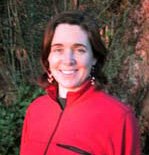 |
Catherine McEwen received her B. Sc. (Ecology) at the University of Guelph, 1980. She has consulted for most of her professional career, initially in wildlife and habitat field studies, natural history interpretation, the organization of wildlife co-management advisory councils in the Yukon and Northwest Territories, and more recently in environmental education.
|
After 17 years in the wild landscape of the Yukon, Cate settled with her partner and two children on an island off the west coast of British Columbia. This southward move had the effect of bringing the impact of the planetary ecological crisis closer at hand, in a milieu where wild spaces are harder to access. She became an activist to protect her island home from industrial-scale clear-cut logging and development. Personal loss sent her seeking a greater meaning to life and presented her with the visions of Pierre Teilhard de Chardin and Thomas Berry.
Aaron Milavec, Professor Emeritus, research fellow at UVic Center for the study of Religion and Society
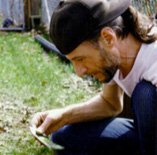 |
Dr. Aaron Milavec, Professor Emeritus, is currently a research fellow at UVic Center for the study of Religion and Society. He is preparing a book detailing the common ground shared by scientific discovery and religious transformation.
|
Aaron Milavec was an enthusiastic and innovative teacher and a dedicated software developer for twenty-five years. He retired from his position as Professor of Church History and Historical Theology at the Athenaeum of Ohio after devoting twelve years to the training of future priests and lay ministers on that campus. During his retirement, he has thrown himself afresh into research, publishing, and lecturing. In his free time, he gravitates towards the arts: painting with water colors, glass blowing, throwing pots; and tends to his beloved garden--a symbol of his whole life.
In his youth, Milavec was fascinated with science. After beginning graduate studies in physics, however, Milavec gravitated toward the philosophy of science and ended up with an abiding passion for religious inquiry and spiritual development. He earned his S.T.B. from the University of Fribourg in 1968 and a Th.D. from the Graduate Theological Union (Berkeley) in 1973.
Professor Milavec has published five books, four chapters in collected works, and a score of journal articles. His publications include: Rediscovered Discipleship: Exploring Scriptural Sources (Sheed & Ward, 1994) which came out in an interactive software version under the title Scripture Sleuth (Liguori Faithware, 1997); his 1200-page volume entitled, The Didache: Faith, Hope, and Life of the Earliest Christians, 50-70 CE (Paulist, 2003); and "Salvation Is from the Jews" (John 4:22): Reflections on the Saving Grace within Judaism (Paulist, 2003).
Bruce Morito, Associate Professor of Philosophy in the Centre for Global and Social Analysis, Athabasca University
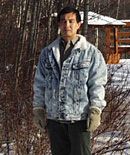 |
Dr. Bruce Morito is an Associate Professor of Philosophy in the Centre for Global and Social Analysis and has been working at Athabasca University since 1998. He is author of the recently published book, “Thinking Ecologically: Environmental Thought, Values and Policy” (Fernwood Publishing, 2002).
Dr Bruce Morito received his Ph.D. (Philosophy) from Guelph, and his B.P.E., B.A., and M.A. from McMaster.Bruce's areas of specialization include environmental philosophy, environmental ethics, value theory, aboriginal rights, metaphysics, personal identity and philosophical psychology.
|
Dr. Morito is currently involved with aboriginal rights issues, environmental policy and education, and is editor of The Trumpeter (an environmental philosophy journal dedicated to the pursuit of understanding and wisdom as it attempts to aid in the development of an ecosophy, or, wisdom born of ecological understanding and insight). Other interests of Bruce are history of philosophy, philosophy of religion, bio-medical ethics, and social and political issues.
Jean Robitaille, Consultant in environmental education and education for a sustainable future,co-founder of AQPERE (Quebec Association for the Promotion of Environmental Education)
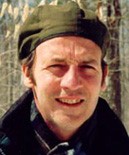 |
Jean Robitaille is a consultant in the fields of environmental education and education for a sustainable future. He is the co-founder of AQPERE (Quebec Association for the Promotion of Environmental Education), and one of the initiateurs of Planet’ERE.
Jean Robitaille est consultant dans le domaine de l’éducation relative à l’environnement (ERE) and de l’éducation pour un avenir viable (EAV). Il est le cofondateur de l’Association québécoise pour la promotion de l’éducation relative à l’environnement (AQPERE) et l’un des initiateurs du forum Planét’ERE.
|
For the past 15 years, Jean Robitaille has been working in the field of Environmental Education (EE) and education for a sustainble future (ESF). He has a background in outdoor education, a master’s degree in education, and solid field experience.
Jean is a teacher/trainer at the school and university level as well as with environmental and development organizations. He is the author of teaching materials and several studies of environmental education in Quebec and abroad. Jean is the co-founder of the Quebec Association for Environmental Education (AQPERE) and one of the founders of Planet’ERE, the first forum of the international francophone community on environmental education. With Marcel LaFleur, his business partner in the firm ERE Education, he has developed diverse educational packages on the environment, food, inter-cultural relations, responsible consumption, and human rights. One of their productions, Terre comprise , (Earth understood), was the subject of a documentary series of 13 programs aired on TFO and Radio-Canada.
Depuis une quinzaine d’année, Jean Robitaille travaille dans le domaine de l’éducation relative à l’environnement (ERE) et de l’éducation pour un avenir viable (EAV). Il possède une formation en éducation plein air, une maîtrise en éducation et une solide expérience sur le terrain. Il agit comme formateur en milieu scolaire et universitaire ainsi qu’auprès de groupes préoccupés d’environnement et de développement. Auteur de matériel didactique et de plusieurs études sur la situation de l’ERE au Québec et à l’étranger, Jean Robitaille est le cofondateur de l’Association québécoise pour la promotion de l’éducation relative à l’environnement (AQPERE) et l’un des initiateurs du forum Planét’ERE, le premier forum francophone international sur l’ERE. Avec Marcel Lafleur, son associé au sein de l’entreprise ERE Éducation, il a réalisé diverses trousses éducatives sur l’environnement, l’alimentation, les relations interculturelles, la consommation responsable et les droits humains. L’une de leurs réalisations, Terre comprise, a notamment fait l’objet d’une série documentaire de 13 émissions diffusées sur les ondes de TFO et de Radio-Canada.
Eric Weiss, Professor of Philosophy and Cosmology at the Sophia Center of Holy Names College in Oakland, California
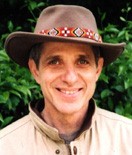 |
Dr. Eric Weiss, MFT is a professor of Philosophy and Cosmology at the Sophia Center of Holy Names College in Oakland, CA., and a psychotherapist in private practice. Dr. Weiss is currently working on a book which utilizes the metaphysical ideas of Sri Aurobindo and Alfred North Whitehead to analyze the history of technology, and to work out the outlines of a sustainable technology which can support an Ecozoic civilization.
|
Dr. Eric Weiss holds a Ph.D. in Philosophy and Religion (California Institute of Integral Studies), an M.A. in Psychology (Antioch University), and a B.A. in Philosophy, with honours (University of California, Santa Cruz).
Eric teaches M.S. level courses on “Cosmology and Yoga” and “The Philosophy of Sri Aurobindo” at Sophia Center of Holy Names College. He has also taught at the California Institute of Integral Studies on the philosophy of Alfred North Whitehead. As a psychotherapist, Eric works with individuals and couples, and supervises interns.
He was a teacher for eight years with Varjradhatu Inc where he instructed on Buddhist theory and practice, holding weekend seminars throughout the U.S..He also taught introductory classes in Buddhist psychology and meditation at the Naropa Institute in Boulder Colorado, he.
Eric served as Project Manager for Interactive Health Systems, working on the development of interactive Computer Based Training (CBT) systems for use with psychiatric populations. During this period, he coordinated various team projects developing CBT systems, such as a CBT course for inpatient alcoholics, also application of the technology to the development of a course for outpatient psychiatric populations.
|
| Readings |
complete e-Dialogue (pdf) |
|
Suggested readings and resources:
|
| On-Line Readings |
|
|
*Note: EBSCOhost (http://www.epnet.com/ ) offers fulltext and bibliographic databases online. EBSCOhost requires a subscription, and is subscribed to by many libraries. If you are a Royal Roads University learner or staff, you can access EBSCOhost at: http://library.royalroads.ca/- Search for Articles link.
Berry, T. 1996. “The University: Its Response to the Ecological Crisis”
http://ecoethics.net/ops/univers.htm
Berry, T. “The Ecozoic Era”
http://www.lightparty.com/Visionary/EcozoicEra.html
Bohm, D. 1993. “Science, spirituality, and the present world crisis”. ReVision, Vol. 15 Issue 4, p146, 6p. (EBSCOhost Academic Search Premier)
Bridle, S. 2001a. “Comprehensive Compassion, an interview with Brian Swimme”. What is Enlightenment? p34-42, 133-135. http://www.wie.org/j19/swimmeintro.asp
Bridle, S. 2001b. “The Divinization of the Cosmos: an interview with Brian Swimme on Pierre Teilhard de Chardin”. What is Enlightenment? p43-46, 136-137. http://www.wie.org/j19/teilhard.asp
Eaton, H. 2001. “Introduction to the Special Edition of Thomas Berry’s The Great Work”. Worldviews: Environment Culture Religion, Vol. 5, Issue 2/3, p115, 9p. (EBSCOhost Academic Search Premier)
Green, H. “A Call for the Ecozoic”. Earthlight #28, Winter 1997-8, p12-13.
http://www.earthlight.org/challenge28.html
Henderson, C. “Pierre Teilhard de Chardin; Toward a Science Charged with Faith”. Chapter 5 of God & Science.
http://www.crosscurrents.org/chardin.htm
Kazlev, M. “The Evolution of Consciousness: Teilhard and Sri Aurobindo compared”
http://www.kheper.net/topics/Aurobindo/Teilhard_and_SriAurobindo.htm
Kelly, A. 2000. “Aristotle, Teilhard de Chardin, and the Explanation of the World”. Quodlibet Journal. Vol. 2, No. 1
http://www.quodlibet.net/kelly-world.shtml
Matare, H. 2000. “Man, Evolution and Ethics: Teilhard de Chardin, Religion and Evolutionary Reality”. Mankind Quarterly, Vol. 40, Issue 3, p343, 4p. (EBSCOhost Academic Search Premier)
Primack, J. “Cosmology and Culture”.
http://physics.ucsc.edu/cosmo/primack_abrams/COSMO.HTM
Scharper, S. 2001. “Democracy, Cosmology, and The Great Work of Thomas Berry”. Worldviews: Environment Culture Religion, Vol. 5, Issue 2/3, p188, 10p.
(EBSCOhost Academic Search Premier)
|
| Books & Articles |
|
|
Appleton-Weber, S. 1999. The Human Phenomenon: Pierre Teilhard de Chardin. Portland, Sussex Academic Press.
Berry, T. 1999. The Great Work: Our Way into the Future. New York, Bell Tower.
Brumbaugh, R. 1992. “Whitehead and a New Look at Teaching Elementary Science”. Interchange, Vol. 23, no. 3, p245-54.
Bruteau, B. 1974. Evolution Toward Divinity; Teilhard de Chardin and the Hindu Traditions. Wheaton, The Theosophical Publishing House.
Devereux, P. 1996. Re-visioning the Earth; a Guide to Opening the Healing Channels between Mind and Nature. New York, FIRESIDE.
Hutchinson, D. 1998. Growing up Green: Education for Ecological Renewal. New York, Teachers College Press.
Isaacs, W. 1999. Dialogue and the Art of Thinking Together: a Pioneering Approach to Communicating in Business and in Life. New York, Doubleday.
King, U. 1996. Spirit of Fire: The Life and Vision of Teilhard de Chardin. New York, Orbis Books.
Moffet, J. 1994. The Universal Schoolhouse: Spiritual Awakening through Education. San Francisco, Jossey-Bass Publishers.
Morito, B. 2002. Thinking Ecologically: Environmental Thought, Values and Policy. Halifax, Fernwood Publishing.
Oliver, D. 1989. Education, Modernity, and Fractured Meaning: Toward a Process Theory of Teaching and Learning. New York, State University of New York Press.
O'Sullivan, E. 1999. Transformative Learning - Educational Vision for the 21st Century. Toronto, University of Toronto Press Incorporated.
Prince Charles article - (PDF)
Purpel, D. 1989. The Moral and Spiritual Crisis in Education: a Curriculum for Justice and Compassion in Education. Massachusetts, Bergin and Garvey.
Daniel Quinn article - (PDF)
Samson, P., and D. Pitt (ed). 1999. The biosphere and noosphere reader. New York, Routledge.
Swimme, B. 1998. “The Resurgence of Cosmic Storytellers”. NAMTA Journal, Vol. 23, no. 1, p145-56.
Swimme, B. and Berry, T. 1992. The Universe Story: From the Primordial Flaring Forth to the Ecozoic Era - a Celebration of the Unfolding of the Cosmos. San Francisco, HarperCollins.
Tucker, M. E. 1998. “The Origins of Religion; Cosmology and Cultivation”. NAMTA Journal, Vol. 23, no. 1, p182-203.
Van Matre, S. 1990. Earth Education: A New Beginning. Warrenville, The Institute for Earth Education.
Wolf, A. 2001. “The Space-Age Source of Spiritual Nurturing. Spotlight: Montessori Potpourri”. Montessori Life, Vol. 26, no. 2, p131-46.
|
| Websites |
|
|
Association québécoise pour la promotion de l’éducation relative à l’environnement (AQPERE)
http://www.aqpere.qc.ca/
Canadian Network of Environmental Education and Communication (EECOM)
http://www.eecom.org/
Center for Ecozoic Studies
http://ecozoicstudies.org/
Center for Respect of Life and Environment (CRLE)
http://www.crle.org
Center for the Story of the Universe
http://www.brianswimme.org/
Earth Education
http://www.eartheducation.org
Ecospheric Ethics
http://www.ecospherics.net
Ontario Society for Environmental Education
http://www.osee.org
North American Association for Environmental Education
http://naaee.org
Northwest Earth Institute
http://www.nwei.org
Teilhard de Chardin Study Group
http://www.groupe-teilhard.org
The Trumpeter
http://trumpeter.athabascau.ca
Towards an Ecozoic Curriculum
http://noisey.oise.utoronto.ca/osee/tec.html
|
|
Royal Roads University
Science, Technology & Environment Division
edialogues@royalroads.ca
|
|
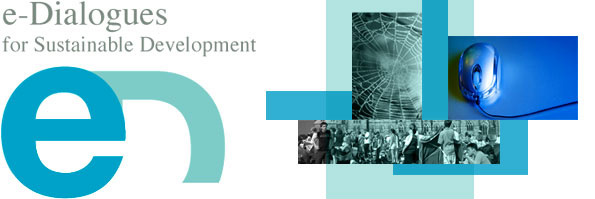
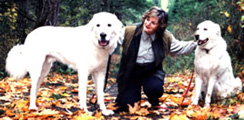
 Bruce Johnson is a professor of environmental learning and science education at the University of Arizona. His research includes looking at the development of ecological knowledge, beliefs, and actions of young people and their teachers.
Bruce Johnson is a professor of environmental learning and science education at the University of Arizona. His research includes looking at the development of ecological knowledge, beliefs, and actions of young people and their teachers. 




